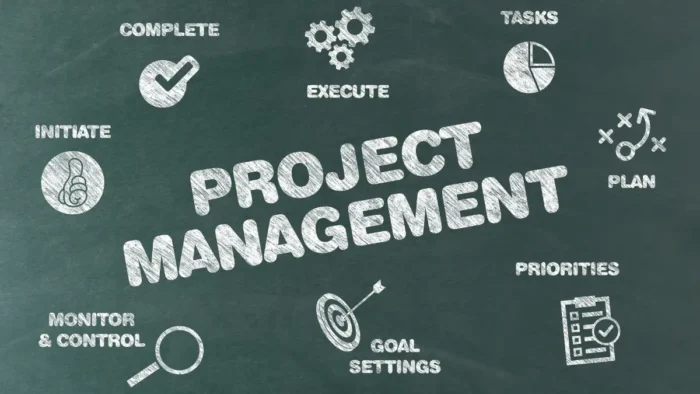For architects, project management plays an essential role in understanding the complexity and nuances of construction projects. Project management is a key factor in successful architecture and should be viewed as more than just paperwork or administrative tasks. Good project management builds efficient teams that can coordinate different tasks into a single, cohesive working unit which directly affects the outcome of any given construction project.
In this blog post, we will explain why it’s important for architects to understand what goes into proper project management and discuss how it adds value to your team’s workflow.
Timely Project Scheduling and Coordination
One of the core reasons why project management is crucial for architects is the aspect of timely project scheduling and coordination. This function ensures that every phase of the construction project, from design conceptualization to the actual construction, runs smoothly and on schedule.
A well-coordinated timetable is crucial for project management for architects as it allows them to keep track of deadlines and make necessary adjustments if any task falls behind schedule. Moreover, a well-organized project timeline also helps architects allocate time for each project phase appropriately, ensuring that each step is given the attention it deserves.
Ensuring Design and Vision Alignment
Project management is also pivotal for architects in ensuring that the design and vision of a project align with the client’s expectations and requirements. This alignment not only involves the aesthetic aspects of the project, but also its functionality, sustainability, and compliance with building codes and standards.
An architect acting as a project manager can effectively communicate and translate these requirements into the design process, thereby minimizing any potential misunderstandings or misinterpretations. By maintaining a clear and steady line of communication with the client and the project team, architects can ensure that the result accurately reflects the initial project vision and meets the client’s needs.
Effective Budgeting and Cost Control
A critical aspect of project management for architects involves effective budgeting and cost control. This process involves meticulous planning and strategic allocation of resources to ensure the project does not exceed its stipulated budget. Architects, acting as project managers, have a responsibility to provide a realistic estimation of costs and to monitor the project’s financial progress.
This involves negotiation with suppliers and contractors for the best prices, cost forecasting, and managing unexpected costs that may arise during the construction process. By effectively controlling costs and budgeting wisely, architects can avoid project overspending, which can lead to financial strain or project abandonment. Effective budgeting and cost control are therefore essential components of project management, ensuring not only the financial health of a project but also its overall success.
Quality Assurance and Compliance
Quality assurance and compliance are other key facets of project management that architects must embrace. Quality assurance involves the implementation of systematic activities to ensure the project meets the specified standards, while compliance ensures adherence to all applicable rules, regulations, and building codes. Architects acting as project managers oversee the adherence to quality standards, ensuring every phase of the project, from design to material selection and construction practices, meets the specified quality benchmarks.
Compliance, on the other hand, involves ensuring the project conforms to all local and national building codes, laws, and regulations. An architect’s knowledge of these codes and regulations is vital for the overall legality, safety, and functionality of the project. Therefore, quality assurance and compliance are integral to project management, contributing to the successful delivery of high-quality, compliant, and safe construction projects.
Managing Stakeholder Expectations
This is a crucial aspect of project management that architects cannot afford to overlook. Stakeholders can include the client, contractors, local community, and any other parties directly or indirectly involved in the project. As project managers, architects need to ensure that all stakeholders are kept informed about the project’s progress, potential issues, and any changes that may affect the project’s outcome.
This communication should be clear, concise, and timely to prevent any misunderstandings or miscommunications. By actively involving stakeholders in the decision-making process and regularly updating them, architects can effectively manage their expectations and build a sense of trust and cooperation. This not only leads to a more harmonious working relationship but also helps identify and address potential issues before they escalate, thus contributing to the overall success of the project.
Communication and Collaboration
Communication and collaboration are fundamental aspects of project management that architects need to master. Clear communication ensures that everyone involved in the project understands their roles, responsibilities, and the expectations placed on them. It aids in the accurate translation of the project vision into a tangible outcome. Through effective communication, architects can mitigate misunderstandings, promptly address issues, and facilitate a smooth workflow among team members.
Collaboration, on the other hand, involves the architect working closely with other professionals like engineers, contractors, and even the clients themselves. This teamwork allows for the pooling of knowledge, skills, and resources, fostering a holistic approach to problem-solving and decision-making. It encourages innovation and creativity, ensuring that the final product is not just functional, but also aesthetically appealing, sustainable, and compliant with all relevant standards and regulations.
In conclusion, project management is crucial for architects as it encompasses various aspects that are essential to the success of any construction project. It ensures timely scheduling and coordination, aligns design with client expectations, manages costs and quality control, and fosters effective communication and collaboration among stakeholders. By understanding the importance of project management and actively implementing its principles, architects can add value to their team’s workflow, leading to more efficient, successful, and satisfactory outcomes for all stakeholders involved.





